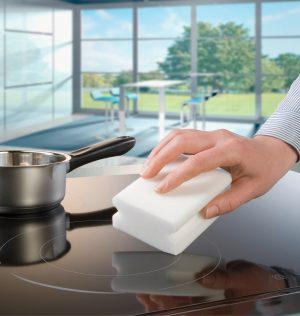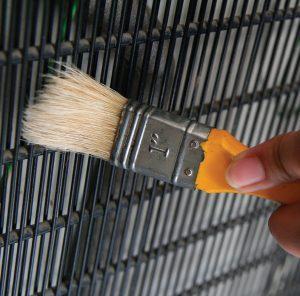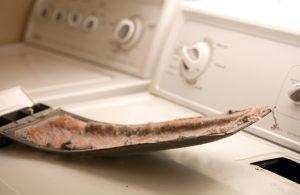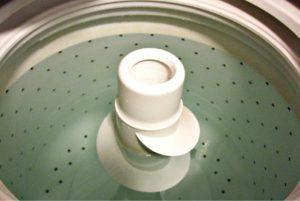It is inevitable; all appliances will eventually wear out. However, proper use and regular maintenance can slow down the speed at which parts begin to fail. Following these few tips can keep your stovetop, dishwasher, refrigerator, clothes dryer and washing machine running longer. Taking a little extra time will save you from spending money on repairmen. Note: Always use safety and protective equipment; read owner’s manuals and follow safety precautions; turn off power to all appliances before opening; and when in doubt call a professional
GLASS AND CERAMIC STOVETOPS
Blunt force — obviously, the worst thing you can do to your stovetop is bang it. Be gentle. The wrong pans — using oversized pans, or pans with a concaved bottom can trap heat and cause the surface to crack. Use flat-bottomed pots and pans that are not larger than the burner. The wrong cleaning products — always remove spilled food as soon as possible, to prevent it from burning on. However, when doing so, be sure to use cleaning products that have been recommended by the manufacturer. Improper abrasives can cause pretty serious cosmetic damage.
DISHWASHER
A nick in the rack — one small nick in the vinyl-coated rack can start rusting that will stain dishes and eventually ruin a dishwasher. Improper loading — incorrect loading and overloading are major factors in poor wash results. They can also lead to noisy operation, broken glassware, and unnecessary wear on the machine. Rinse aid — ensure that the rinse-aid selector is set to the proper dosage. Glassware that shows spotting or filming is a sure sign that rinse aid is low. Hand washing — hand wash large pots, pans, colanders and anything with sharp edges. Sharp items — any sharp items that you do not hand wash should be arranged so that they do not damage the racks or the door seal. Using a lime remover once a month will help keep your dishwasher at peak performance.
FRIDGES AND FREEZERS
You must clean the dust that builds up on the condenser coils. They are usually located behind a grille at the back or the bottom of the appliance. Dirty coils force the compressor to work harder and it could overheat. Most are covered by a five year warranty, but can easily last twice as long if properly maintained. If not, repairs are usually too costly to justify vs. replacing the appliance. To clean, use a vacuum cleaner and a condenser-coil cleaning brush (tapered bottle-type brush with a short handle). Gently brush the surface and in between the coils, then vacuum. Repeat until the coils are dust-free. Avoid poking the coils with the vacuum or any metal items, such could damage the coils. A full freezer is more efficient. With more to hold the cold, an efficient freezer will save energy and prolong the life of the compressor and the fridge itself.
CLOTHES DRYERS
Clean out the lint — any build-up of lint will drastically reduce airflow, which forces your dryer to work harder to dry your clothes. Additionally, large numbers of domestic fires are linked to clothes dryers. Read your instruction manual carefully and clean the lint filter every time you use the dryer. Additionally check the back, air vents, around the door, and anywhere else lint tends to accumulate. Check the venting — consider replacing plastic or vinyl exhaust hoses with rigid or flexible metal venting, making sure that the path from dryer to outside is as straight as possible.
WASHING MACHINES
Check clothes for coins and other metal objects — check the pockets of clothing before washing, and hand wash any clothing with heavy metal fasteners. Metal objects can damage the inner drum and/or outer tub. Inner-drum damage can pull and tear clothes, while outer-tub damage can lead to leaks. Overloading your machine creates additional strain on certain parts, such as bearings and suspension. ![]()









